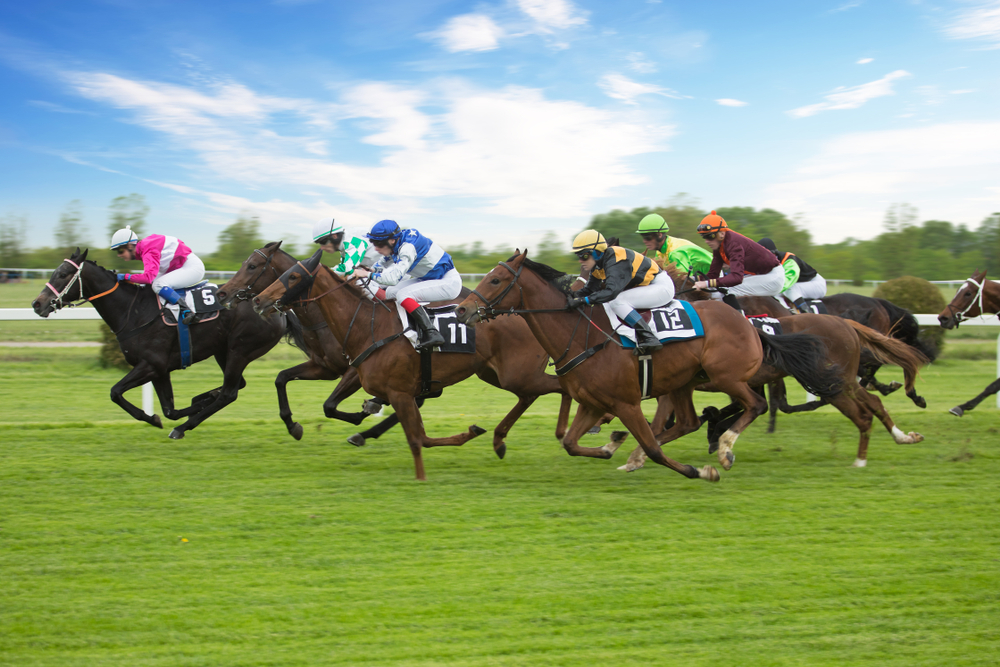Handball, an exhilarating and fast-paced sport, has gained immense popularity across the globe. For those fascinated by this exciting game, understanding its governing body – the International Handball Federation (IHF) is essential.
Founded in 1946 and now consisting of 209 national federations worldwide, the IHF shoulders significant responsibilities such as promoting handball globally, overseeing tournaments like the World Championships, and ensuring fair play among all participants.
Suited for both indoor and wheelchair athletes alike, handball offers endless possibilities for players and fans.
Key Takeaways
- The International Handball Federation (IHF) is responsible for regulating and promoting handball globally, with 209 national federations under its governance.
- The IHF organises major tournaments like the Handball World Cup, Olympic Games, and Continental Championships while also determining team rankings based on performance in these events over a four-year period.
- In addition to setting rules and enforcing regulations for fair play among players and teams, the IHF supports the growth of handball worldwide through development initiatives such as Handball at Schools Program, Beach Handball Development Program Challenge Trophy.
Understanding The International Handball Federation (IHF)
The International Handball Federation (IHF) was founded in 1946 and is responsible for regulating and promoting handball around the world, with a total of 209 national federations under its governance.
The IHF’s History And Role In Promoting Handball Globally
The International Handball Federation (IHF) was officially established in 1946, with the aim of governing handball on a global level and ensuring the continued growth of the sport.
Over time, it has grown into a prominent international organization, boasting 209 national federations under its umbrella.
Since its inception, the role of IHF has been crucial in promoting handball as an exciting and fast-paced sport enjoyed by millions across the globe. One notable example is their organisation of the Handball World Cup every four years – an event that brings together top teams from around the world to compete for ultimate glory.
Furthermore, actively working with regional bodies like Asian Handball Federation showcases their commitment to expanding handball’s reach not just on a local scale but globally too.
IHF’s Major Tournaments And Events
The IHF organises major tournaments and events like the World Championships, Olympic Games, and Continental Championships.
Overview Of The World Championships, Olympic Games, And Continental Championships
The IHF organizes several major tournaments and events throughout the year, including:
The Handball World Cup: Takes place every four years and features the top handball teams from around the world.
The Olympic Games: Handball has been an Olympic sport since 1972 with both men’s and women’s competitions.
Continental Championships: Organised by regional federations such as the European Handball Federation or the Pan-American Team Handball Federation.
Each of these events provides a platform for handball players to showcase their skills on a global stage while also promoting the growth of the sport worldwide. Additionally, these tournaments play a significant role in determining the IHF World Rankings, which are used to seed teams in future competitions.
It is worth noting that handball enjoys immense popularity in some regions over others, with European nations particularly dominant in recent years. The IHF remains committed to expanding its reach globally and has established several development initiatives to facilitate this growth.
How The IHF World Rankings Are Determined
The IHF World Rankings provide a list of the top handball teams globally, determined by several factors. The rankings are based on points earned by each team during specific tournaments and events such as the World Championship, Continental Championships, and Olympic Games.
These points are calculated based on the team’s performance in these competitions over a four-year period and take into account wins, losses, draws, goals scored and conceded.
The team with the most points earns the top spot on the rankings.
It’s worth noting that not all matches carry equal weightage towards ranking calculations; higher-rated opponents grant more marks than lower-ranked ones for teams performing better than expectations during major competitions also receive bonus marks which can help push them up or down the rankings.
IHF’s Responsibilities
The IHF is responsible for setting and enforcing the rules of handball, developing national federations to promote the sport globally, and ensuring fair play among players and teams – learn more about their essential roles in advancing handball.
Setting And Enforcing Rules And Regulations For The Sport
The IHF plays a crucial role in setting and enforcing the rules and regulations for handball. They ensure that all matches are played under fair conditions, with no player getting an unfair advantage over others.
The IHF’s rulebook outlines the different types of throws allowed during matches, including the throwoff, goalkeeper throw, free throw and meter throw.
One example of their dedication to regulation is Norway’s fine at the European Beach Handball Championships. The national team was fined €1,500 because the players wore shorts instead of bikini bottoms during their match against Spain.
Developing National Federations And Supporting The Growth Of Handball Globally
The IHF is not just responsible for organizing major tournaments and enforcing rules, but also plays a vital role in developing national federations and promoting the growth of handball worldwide.
One example of successful development is from Egypt where an initiative was launched by IHF Africa that resulted in an increased interest in handball among young people. This led to more clubs being formed across the country and more opportunities for players at all levels.
Further still, this has allowed nations once considered “minnows” such as Qatar or Tunisia become powerhouses overnight with quality players developed after receiving supports from these programs initiated by IHF resulting in winning major competitions globally – a testament to what good development structures can offer.
In conclusion, The International Handball Federation’s focus on providing support for developing nations continues to make strides toward globalizing handball’s presence around the world ultimately leading towards progressions in infrastructure, player developments while harnessing its cultural diversity through sportsmanship ethics paving way for continued growth of handballs’ global community.
Ensuring Fair Play And Sportsmanship Among Players And Teams
Fair play and sportsmanship are at the core of handball, and the International Handball Federation takes this very seriously. The IHF sets strict rules and regulations to ensure that all players and teams adhere to fair play principles both on and off the court.
Moreover, in cases where a team has been found guilty of violating these rules, the IHF will not hesitate to impose sanctions or penalties.
In recent years, there have been instances where fine examples of fair play have been exhibited in some high-profile games.
IHF’s Development Initiatives And Future Of Handball
The IHF is committed to developing handball and promoting the sport globally, with initiatives such as the Challenge Trophy and Training Manual.
Case Studies Of Successful Development Initiatives
The IHF has implemented various development initiatives that have helped promote handball globally. Below are some of the successful case studies:
- Handball at Schools Program: The program, which was launched in 2015, aims to introduce handball to children in primary schools. The IHF provides free equipment and training materials to schools, and national federations are required to organize school competitions.
- Handball for All Program: This initiative focuses on promoting gender equality and social inclusion in handball. It targets disadvantaged communities and encourages the participation of women, people with disabilities, and refugees.
- Beach Handball Development Program: The program seeks to promote beach handball as a separate discipline from indoor handball. It provides training for coaches and technical officials and organizes regional competitions.
- Challenge Trophy: The Challenge Trophy is an annual competition organized by the IHF to promote the growth of handball in developing nations. The winning team receives financial support from the IHF for future development projects.
- Technical Delegates Training Course: The course is designed to train technical delegates who oversee international competitions. It covers topics such as rules interpretation, scorekeeping, and anti-doping regulations.
Overall, these development initiatives have contributed significantly to the growth of handball globally while promoting fairness, inclusivity, and sportsmanship among players and teams.
The Importance Of The Challenge Trophy In Promoting Handball
One of the most important initiatives by the International Handball Federation (IHF) in promoting handball worldwide is through its Challenge Trophy. This trophy is awarded to an emerging handball nation that shows outstanding progress and development within a specific period.
The IHF uses this program as a way to identify talent and support the growth of handball globally. The Challenge trophy also offers the recipient federation equipment and financial resources, which empower them towards their goal.
The IHF Challenge Trophy not only helps to raise awareness about lesser-known handball nations but also provides significant exposure for local players while improving infrastructure at grassroots levels across federations worldwide.
The IHF Training Manual
The IHF has developed a comprehensive training manual for handball coaches and players alike. This manual covers everything from basic techniques to advanced strategies, as well as tactics that are specific to certain positions on the court.
The training manual includes practical exercises, drills, and games designed to help players develop their technique and build fundamental skills such as ball handling, passing accuracy, shooting proficiency, footwork agility, defensive movements among others.
The manual also helps coaches identify areas where individual players need improvement or additional support by providing examples of how different techniques can be executed incorrectly.
Conclusion And The Future Of Handball With The IHF
In conclusion, the International Handball Federation plays a crucial role in promoting and developing handball globally.
The future of handball looks bright with the IHF at the helm, organising major tournaments like World Championships, Olympic Games, and Continental Championships.





